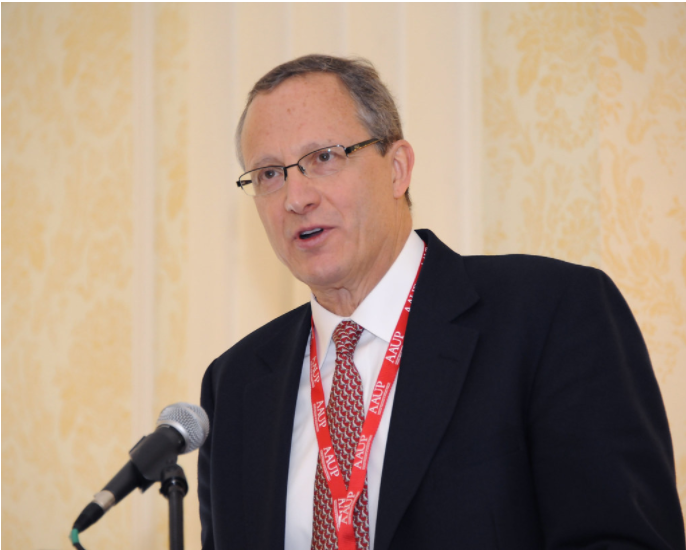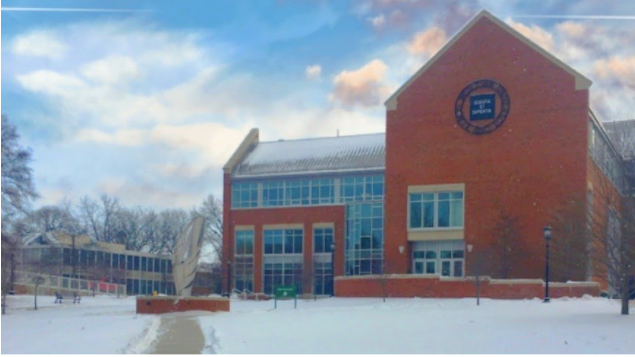
Photo: Flickr
The American Association of University Professors (AAUP) has launched a comprehensive investigation into Illinois Wesleyan’s academic conduct after recent decisions to deliver terminal contracts to multiple professors due to departmental closures.
The investigation will focus on seven institutions that, according to the AAUP, have had major shortcomings in governance among the current global pandemic. Other institutions involved include: Canisius College, Keuka College, Marian University, Medaille College, National University and Wittenberg University.
The Board of Trustees and President Nugent sent their official response to the organization on September 11 and it was announced September 21 that the organization will move forward in launching an official investigation of the actions of the university’s administration.
The administration’s 10 page response was addressed to Gregory Scholtz, the AAUP’s Director of the Department of Academic Freedom, Tenure and Governance, and made the argument that the faculty who were to receive terminal contracts were, in fact, given alternatives to termination.
The opening of the letter stated, “the information on which that letter is based has come to you ‘entirely from faculty sources’ and we appreciate your recognition that we ‘may have additional information that would improve [y]our understanding of what has occurred.”
The AAUP’s goal, as outlined in their mission statement on their website, “is to advance academic freedom and shared governance; to define fundamental professional values and standards for higher education; to promote the economic security of faculty, academic professionals, graduate students, post‐doctoral fellows and all those engaged in teaching and research in higher education; to help the higher education community organize to make our goals a reality; and to ensure higher education’s contribution to the common good.”
In the letter announcing the investigation, it was detailed that the organization received many complaints from people connected to IWU in the last six months.
“Since March, the AAUP has received numerous complaints from faculty members detailing unilateral actions taken by their governing boards and administrations to dictate how courses are taught, to suspend key institutional regulations, to reduce and close departments and majors, to compel faculty members to teach in person and to lay off long-serving faculty members,” Scholtz said.
“Since March, the AAUP has received numerous complaints from faculty members detailing unilateral actions taken by their governing boards and administrations to dictate how courses are taught, to suspend key institutional regulations, to reduce and close departments and majors, to compel faculty members to teach in person and to lay off long-serving faculty members,” Scholtz said.
The investigation was noted to be unique to those that the AAUP has carried out in the past, matched only by the investigation of institutions in New Orleans that terminated long-term faculty following Hurricane Katrina.

Photo: Samira Kassem
The email explained the process, detailing that “investigations are conducted under the protection of the AAUP’s Committee on College and University Governance by AAUP members who have had no previous involvement in the cases under investigation.”
“The investigating committee is charged with independently determining the relevant facts and the positions of the principal parties before reaching its findings. The committee’s draft report, if approved for publication by the parent committee, is distributed to the administration and the relevant faculty bodies for comment and correction of fact,” Scholtz said.
The committee for the investigation of Illinois Wesleyan is co-chaired by Michael Berube of Pennsylvania State University and Michael DeCesare of Merrimack College who currently serves as chair of the AAUP’s Committee on College and University Governance.
The 11-page outline that was sent to the University outlines the exact actions that have caused the investigation and closes,“As demonstrated above: rather than every effort, very little effort was expended, and this helps to confirm that the program evaluation process was not substantially based in a bona fide manner on educational considerations. The response states that IWU’s administration will see what opportunities materialize for faculty facing the end of their careers at IWU. Despite our concerns about the extent to which this might be true, we still fervently hope it is.”
Although the correspondence did not detail the specific date that the official report of the investigation will be complete, Scholtz pledged to send updates as they come and provided the link to a livestream discussion with the co-chairs of the investigating committee.
